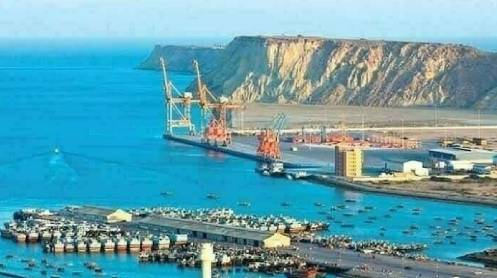ISLAMABAD: Pakistan is facing the critical task of phasing down its coal power plants, necessitating a careful examination of various factors like energy security, environmental impacts, socio-economic impacts of just transition, and feasibility of power generation alternatives, says a new United Nations report.
One of the main challenges of phasing out coal in Pakistan is the existing coal capacity and long-term agreements associated with coal projects, such as those under the China-Pakistan Economic Corridor (CPEC). The government faces difficulties in shutting down these plants immediately due to capacity payments and circular debt issues, says the report, “Phasing-Down the Use of Coal in Pakistan”, published by the United Nations Economic and Social Commission for Asia and the Pacific (UN-ESCAP) on Monday.
Additionally, global economic factors, such as the Russia-Ukraine conflict and Covid-related logistics issues, have led to high natural gas prices and increased reliance on coal for power generation, it says.
Given that nine out of a total of eleven of Pakistan’s coal-fired power plants have come online under the China-Pakistan Economic Corridor (CPEC), China’s announcement to stop investing in coal-fired power projects abroad post-2021 presents an invaluable opportunity for transitioning away from coal, the UN report says.
The report emphasised that investments in greener energy need to increase significantly by 2030 compared to 2021 levels to put the country on a path to sustainability. This requires scaling up and reallocating capital towards low-carbon fuels, energy efficiency, while reducing investments in fossil fuels. Identifying cost-effective financing mechanisms, including grants, concessional finance, and innovative financial instruments is crucial to mobilize the necessary capital for the transition, it says.
Just Energy Transition Partnerships (JETPs), which aim to align national climate goals with net-zero emissions targets and promote investments in renewable energy while managing the transition away from fossil fuels, are one potential source of financing the transition away from coal. JETP funds are designed to be targeted and catalytic, mobilizing financing from multiple sources.
The report points out that phasing out coal in Pakistan is a complex task that requires a holistic and multifaceted approach. The phase-out of coal presents both challenges and opportunities for Pakistan’s energy transition. The transition process requires a comprehensive approach that goes beyond power generation and encompasses other energy scenarios, such as the fossil-fuel dominated industrial sector. To facilitate this transition, it is crucial to enhance the focus to incorporate a broader range of sectors and stakeholders, it says.
Pakistan has abundant renewable energy resources but faces challenges through its limited grid infrastructure to support the integration of renewables. Maintaining grid stability, significant investment and coordination among stakeholders are required to upgrade and expand the grid to accommodate variable renewable energy generation.
The UN report recommended that a comprehensive energy transition plan needs to be formulated that outlines clear targets, timelines, and sector-specific strategies for phasing-out coal, promoting renewable energy and building out enabling infrastructure, such as electricity grids. This plan should involve extensive stakeholder consultations and take into account environmental, social, and economic considerations.
A medium to long-term policy and regulatory framework needs to be developed to provide certainty and support for public-private partnerships and encourage cost reduction and indigenous production of renewable energy equipment and technologies.
The report says that well-designed and bankable remuneration schemes, with appropriate risk allocation between public and private actors, are critical to creating profitable investment opportunities that provide investors with an adequate and reasonable return on capital. Competitive auction mechanisms with these features have supported renewable power investments, at reduced cost, in many countries around the world.
The report maintained that the phase-out of coal will have socio-economic implications, particularly in regions dependent on coal mining and power generation. Ensuring a just transition for affected workers and communities is essential, which involves reskilling and retraining programmes, job creation in alternative sectors, and social protection measures.
Pakistan aims to reach 60 per cent of its electricity production from renewable sources as well as hydropower by 2030. This ambitious target would require an estimated investment of $50 billion by 2030 and $80 billion by 2040. Most of the capacity additions (more than 12 GW of capacity) in the upcoming years are expected to be of hydropower, which would require an estimated investment of about $20 billion, the report says.
In terms of social and environmental benefits and costs under the different pathways green jobs and emissions savings are expected to be the highest under an accelerated coal phase-out. The accelerated phase-out is expected to contribute to improved water quality and reduced groundwater contamination, particularly in regions where contamination is high.





